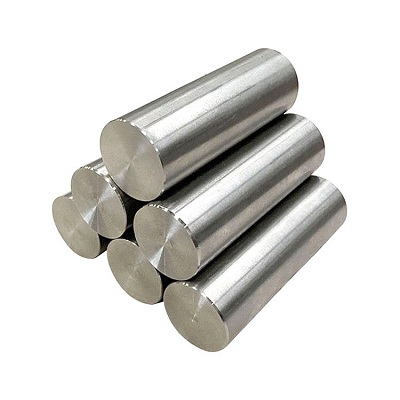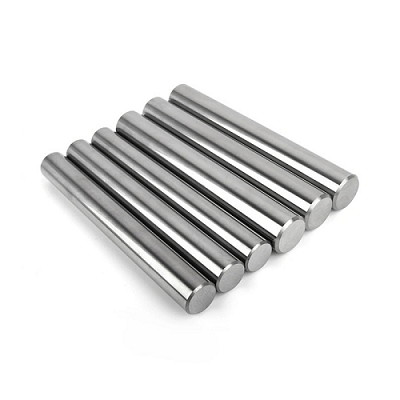nickel alloy corrosion resistance?
 Sep
30,2024|
Sep
30,2024| View:584
View:584
I. Introduction to Nickel Alloys
Nickel alloy is an alloy material composed of nickel and other metal elements. Nickel alloys have many excellent properties, such as high strength, good toughness, and excellent heat resistance. Among these characteristics, its corrosion resistance performance is particularly prominent.


II. The Corrosion Resistance Mechanism of Nickel Alloys
The reason why nickel alloys have good corrosion resistance mainly benefits from the following aspects. Firstly, nickel itself has strong corrosion resistance and can resist the erosion of various corrosive media. Secondly, other alloy elements in nickel alloys can further improve their corrosion resistance. For example, the addition of chromium elements can enhance the resistance of nickel alloys to oxidizing media, and molybdenum elements help to improve the tolerance to reducing media. The dense oxide film formed by nickel alloys can also effectively prevent the further penetration of corrosive media and play a role in protecting the substrate.
III. The Corrosion Resistance Performance of Different Types of Nickel Alloys
(A) Nickel-Chromium Alloys
Nickel-chromium alloys perform excellently in high-temperature and corrosive environments. It is widely used in the aerospace, petrochemical and other fields and can resist high-temperature oxidation and the erosion of various corrosive media.
(B) Nickel-Molybdenum Alloys
Nickel-molybdenum alloys have particularly excellent corrosion resistance to reducing media and are often used in working conditions involving corrosive substances such as strong acids and strong alkalis.
(C) Nickel-Copper Alloys
Nickel-copper alloys have good corrosion resistance in chloride environments such as seawater and are important materials in marine engineering and other fields.
IV. The Influencing Factors of the Corrosion Resistance Performance of Nickel Alloys
(A) Alloy Composition
Different combinations of alloy components will have an important impact on the corrosion resistance performance of nickel alloys. Reasonable adjustment of alloy composition can optimize its corrosion resistance.
(B) Environmental Conditions
The corrosion resistance performance of nickel alloys will also be restricted by environmental factors. For example, temperature, pH, and the concentration of corrosive media will all affect its corrosion resistance effect.
(C) Processing Technology
The heat treatment and welding processes in the processing process may also have a certain impact on the corrosion resistance performance of nickel alloys.
V. The Practical Application of the Corrosion Resistance Performance of Nickel Alloys
(A) Chemical Industry
In chemical plants, a large number of equipment and pipelines need to withstand the test of various corrosive media. Nickel alloys have become the preferred material with their reliable corrosion resistance performance.
(B) Marine Engineering
Facing the erosion of seawater, nickel alloys play a key role in marine platforms, ships and other fields, ensuring the long-term safe operation of facilities.
(C) Aerospace
Under extreme environmental conditions, the corrosion resistance performance of nickel alloys ensures the high performance and reliability of aerospace equipment.
VI. Testing and Evaluation of the Corrosion Resistance Performance of Nickel Alloys
In order to accurately evaluate the corrosion resistance performance of nickel alloys, a variety of test methods are usually used, such as electrochemical tests and immersion tests. These tests can help us understand the corrosion rate and corrosion morphology of nickel alloys in different environments, thereby providing a basis for their reasonable application.
VII. The Future Development and Challenges of Nickel Alloys
With the continuous progress of technology, the requirements for the corrosion resistance performance of nickel alloys are also continuously increasing. In the future, the research of nickel alloys will develop in the direction of higher performance and more adaptability to complex environments. At the same time, it also needs to face challenges such as shortage of resources and high costs, and solve these problems through continuous innovation.
In conclusion, nickel alloys play an important role in various fields with their excellent corrosion resistance performance. In-depth study of the corrosion resistance mechanism, influencing factors, and applications of nickel alloys is of great significance for promoting their better development and application. "Is nickel alloy corrosion-resistant?" The answer is clear, and its corrosion resistance performance will continue to be enhanced and optimized, making greater contributions to the development of modern industry. We have reason to believe that nickel alloys will show a broader prospect and potential in the future development.




